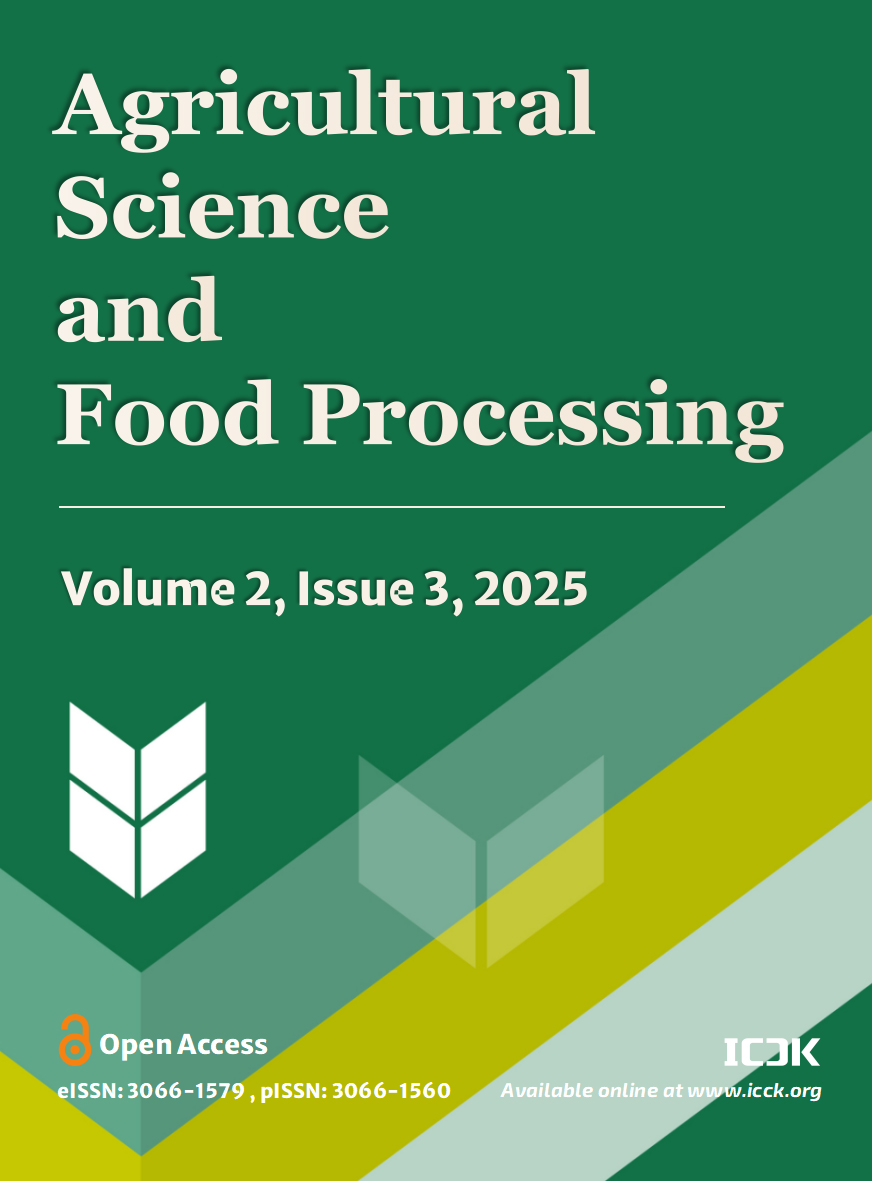Abstract
The study assessed sex-based barriers and drivers of access to agricultural resources in Ebonyi State, Nigeria. A total of 120 farmers (60 males and 60 females) were surveyed using structured questionnaires. Frequencies, means, standard deviation, t-tests, and logistic regression were employed for data analysis. Results revealed that male farmers had higher access to key resources such as land ($\bar{x}$ =3.61), credit ($\bar{x}$ =3.15), and extension services ($\bar{x}$ =3.18), compared to female farmers, who recorded lower access levels (land $\bar{x}$ =2.52; credit $\bar{x}$ =2.35). In terms of perceived constraints, male farmers cited inadequate finance ($\bar{x}$ =3.15) as a major limitation, while female farmers highlighted discriminatory social norms ($\bar{x}$ =3.20) and lack of access to credit ($\bar{x}$ =3.10). Socio-economic characteristics influencing access showed that education and cooperative membership significantly affected access for males (p=0.041 and p=0.012), while age and cooperative membership were significant for females (p=0.023 and p=0.008). The hypothesis confirmed a significant difference in overall access levels between male and female farmers (t=4.812, p=0.001). The study concludes that gender disparities persist in agricultural resource access. Strengthening women’s cooperative membership, reducing socio-cultural barriers, and improving access to land and finance are recommended to promote gender equity in agricultural development.
Keywords
sex-based disparities
access to agricultural resources
ebonyi state
Nigeria
Data Availability Statement
Data will be made available on request.
Funding
This work was supported without any funding.
Conflicts of Interest
The authors declare no conflicts of interest.
Ethical Approval and Consent to Participate
Not applicable.
Cite This Article
APA Style
Njoku, C. L., Ejike, O. S., Emehute, V. C., & Azuamairo G. C. (2025). Sex-Based Barriers and Drivers of Access to Agricultural Resources in Ebonyi State, Nigeria. Agricultural Science and Food Processing, 2(3), 142–147. https://doi.org/10.62762/ASFP.2025.886018
Publisher's Note
ICCK stays neutral with regard to jurisdictional claims in published maps and institutional affiliations.
Rights and Permissions

Copyright © 2025 by the Author(s). Published by Institute of Central Computation and Knowledge. This article is an open access article distributed under the terms and conditions of the Creative Commons Attribution (CC BY) license (
https://creativecommons.org/licenses/by/4.0/), which permits use, sharing, adaptation, distribution and reproduction in any medium or format, as long as you give appropriate credit to the original author(s) and the source, provide a link to the Creative Commons licence, and indicate if changes were made.


 Submit Manuscript
Edit a Special Issue
Submit Manuscript
Edit a Special Issue
 Copyright © 2025 by the Author(s). Published by Institute of Central Computation and Knowledge. This article is an open access article distributed under the terms and conditions of the Creative Commons Attribution (CC BY) license (https://creativecommons.org/licenses/by/4.0/), which permits use, sharing, adaptation, distribution and reproduction in any medium or format, as long as you give appropriate credit to the original author(s) and the source, provide a link to the Creative Commons licence, and indicate if changes were made.
Copyright © 2025 by the Author(s). Published by Institute of Central Computation and Knowledge. This article is an open access article distributed under the terms and conditions of the Creative Commons Attribution (CC BY) license (https://creativecommons.org/licenses/by/4.0/), which permits use, sharing, adaptation, distribution and reproduction in any medium or format, as long as you give appropriate credit to the original author(s) and the source, provide a link to the Creative Commons licence, and indicate if changes were made. 